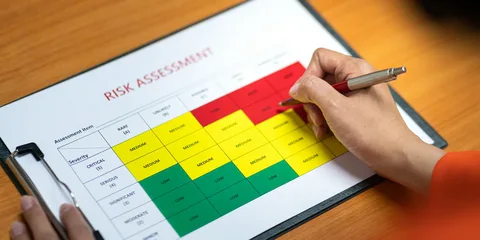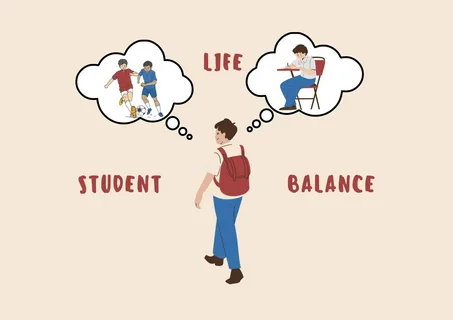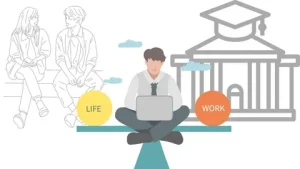People Society
EU’s Stance on Religious Symbols: Analysis by Dr. Elena Rossi

Introduction
Dr. Elena Rossi is a leading expert in European politics and culture, holding a Ph.D. in Political Science and over ten years of research on EU policies. In this analysis, Dr. Rossi unpacks the European Union’s stance on religious symbols, exploring the legal framework, historical roots, and the forces driving recent decisions. Her clear-eyed perspective highlights how these policies affect individual rights, social harmony, and the push-and-pull between secularism and multiculturalism across member states.
1. Understanding the EU’s Official Stand
The EU does not have a single, binding rule on religious symbols. Instead, it relies on several treaties, directives, and court rulings that guide member states. Key documents include:
- Treaty on European Union (TEU): Declares the EU a neutral body regarding religion, protecting both freedom of religion and the separation of church and state.
- Charter of Fundamental Rights: Guarantees freedom of thought, conscience, and religion in Article 10, and freedom of expression in Article 11.
- Court of Justice of the European Union (CJEU) Rulings: Has ruled on cases like REBEL and Egenberger, shaping how bans or restrictions on symbols apply at work and school.
Historically, the EU formed from nations that valued secular governance, yet each carried different traditions. Over time, rising diversity and migration prompted debates on how far neutrality should go. Key drivers include concerns about social cohesion, anti-discrimination, and the balance between public order and personal freedoms.
2. Impact on Freedom of Expression
Restricting religious symbols touches directly on freedom of expression. Displaying a cross, hijab, kippah, or other symbol can be a personal act of identity. Limitations may protect secular spaces but can also silence individual voices. Dr. Rossi points out:
- Positive Effects: Uniform dress codes can reduce visible divisions in public institutions like schools and courts, fostering a sense of shared citizenship.
- Negative Effects: Blanket bans risk alienating minority groups, sparking protests, and eroding trust in government. Students forced to remove headscarves, for example, may feel their beliefs are unwelcome.
Finding the right balance requires clear rules that respect both public neutrality and personal rights. Courts often weigh each case individually, considering context, purpose, and proportionality.
3. Multiculturalism vs. Secularism: Striking a Balance
The EU champions multiculturalism, valuing diverse cultures and religions. At the same time, many member states uphold secularism—the separation of religion from state affairs. Dr. Rossi explains the challenge:
- Strict Secularism (Laïcité): France’s model bans religious symbols in public schools and for civil servants in authority roles. It aims to ensure state neutrality.
- Inclusive Secularism: Germany allows religious symbols for staff and students but restricts them in certain state roles. The focus is on dialogue and respect.
- Multicultural Accommodation: Italy often permits religious symbols as part of cultural heritage, stressing individual rights while maintaining public order.
Policymakers must navigate these models, asking: How do we respect all beliefs without letting religion dominate public life? The answer varies by country, history, and public sentiment.
4. Case Studies: Member States’ Responses
| Member State | Approach to Religious Symbols |
|---|---|
| France | Bans visible symbols in schools; strict neutrality for public roles. |
| Germany | Allows symbols, except in sensitive state positions; dual system. |
| Italy | Embraces symbols as cultural heritage; limited restrictions. |
| Sweden | Focus on tolerance; symbols allowed in most contexts. |
| Hungary | Emphasizes Christian heritage; open display encouraged. |
- France: In 2004, France banned conspicuous religious symbols in public schools. A 2010 law extended to public servants in “positions of authority.”
- Germany: Federal states set rules. In courts, judges must be neutral, so some forbid judges from wearing crosses. Teachers may wear headscarves in some states but not others.
- Italy: No blanket bans; municipalities sometimes restrict symbols in specific areas, but national law leans on individual rights.
- Sweden: Emphasizes workplace rights; public servants may wear symbols, provided they don’t interfere with duties.
- Hungary: The government supports Christian symbols as part of national identity, yet also respects minority religions under its constitution.
These varied approaches show there is no one-size-fits-all solution. Each country’s history, demographics, and legal system shape its policies.
5. Public Opinion: A Spectrum of Views
Public sentiment on religious symbols ranges widely. Dr. Rossi analyzes surveys and interviews across the EU:
- Support for Neutrality: Many citizens back bans in schools to prevent sectarian divides.
- Defense of Personal Freedom: Others oppose restrictions, seeing them as attacks on identity.
- Youth vs. Elder Opinions: Younger people often favor individual rights, while older generations may prioritize public order.
- Urban vs. Rural Divide: Urban areas, with more diversity, tend to be more accepting of visible symbols.
In a recent Eurobarometer survey, 60% agreed schools should remain symbol-free, while 40% felt individuals should wear symbols freely. Dr. Rossi notes that dialogue and education can help bridge these divides.
6. The Road Ahead: Possible Revisions and Adaptations
EU policies on religious symbols will continue to evolve. Dr. Rossi highlights potential changes:
- Clearer EU Guidelines: A unified directive could help align member states while respecting national differences.
- Enhanced Anti-Discrimination Measures: Strengthening legal protection for religious minorities may reduce conflicts.
- Context-Specific Rules: Allowing symbols in certain public spaces but not in roles involving state authority.
- Ongoing Dialogue: Forums and workshops bringing together policymakers, religious leaders, and community members to foster understanding.
Future shifts will depend on migration patterns, social cohesion needs, and the EU’s broader commitment to fundamental rights.
Conclusion
Dr. Elena Rossi’s analysis underscores the complexity of the EU’s stance on religious symbols. Through a mix of treaties, court rulings, and national models, the EU seeks a middle path between secular neutrality and cultural diversity. Member states’ varied responses reveal deep historical and social roots, while public opinion highlights ongoing debates. Looking ahead, clearer guidelines and respectful dialogue will be key to balancing individual freedoms with secular principles. As Europe grows more diverse, nuanced policymaking and open conversations will shape a harmonious future—where freedom of expression and public unity go hand in hand.
Business industrial
Fire Risk Assessment London: Legal Compliance for Landlords

A Fire Risk Assessment London is a fundamental legal requirement for landlords, property managers, and business owners responsible for buildings that contain shared or non-domestic areas. It is designed to identify potential fire hazards, assess the level of risk to occupants, and ensure appropriate fire safety measures are in place to protect lives and property.
In a city like London, where buildings vary widely in age, layout, and occupancy, carrying out a suitable and sufficient fire risk assessment is not just a legal formality—it is a critical responsibility.

Understanding Fire Risk Assessment in London
A fire risk assessment is a systematic inspection of a property to evaluate fire hazards and determine whether existing safety controls are adequate. The process considers how a fire could start, how it could spread, and how occupants would escape in an emergency.
Under the Regulatory Reform (Fire Safety) Order 2005, the duty to carry out a fire risk assessment falls on the “Responsible Person.” This is typically the landlord, building owner, managing agent or employer who oversees the property.
A valid Fire Risk Assessment London applies to:
-
Blocks of flats and apartment buildings (communal areas)
-
Houses in Multiple Occupation (HMOs)
-
Commercial properties and offices
-
Retail units and hospitality venues
-
Care homes, schools, and mixed-use buildings
Failing to comply can lead to enforcement notices, significant fines, or legal action.
Why Fire Risk Assessment Is Crucial for Landlords
For landlords, fire safety compliance is not optional. A professional fire risk assessment demonstrates that reasonable steps have been taken to protect tenants and visitors from fire hazards. It also supports broader legal obligations related to property management and tenant safety.
A compliant assessment plays an important role in achieving and maintaining a valid Landlord Safety Certificate London, which demonstrates that a property meets essential safety standards. This is particularly important for landlords managing rental properties, HMOs, or portfolios with shared spaces.
By keeping fire risk assessments up to date, landlords can:
-
Reduce the risk of fire incidents
-
Protect tenants and occupants
-
Meet legal and insurance requirements
-
Avoid penalties and enforcement action
-
Improve overall building safety management
What a Professional Fire Risk Assessment Covers
A comprehensive Fire Risk Assessment London goes beyond a simple checklist. It involves a detailed evaluation of both active and passive fire safety measures within the building.
Key areas assessed include:
-
Identification of fire hazards and ignition sources
-
Assessment of combustible materials and fire load
-
Condition and suitability of escape routes
-
Fire doors, compartmentation, and passive fire protection
-
Fire alarm and detection systems
-
Emergency lighting and fire signage
-
Firefighting equipment such as extinguishers
-
Risk to occupants, including vulnerable individuals
-
Fire safety management procedures and documentation
The assessment concludes with a clear action plan, prioritizing necessary improvements and providing practical recommendations to reduce risk.
Frequency and Review of Fire Risk Assessments
Fire risk assessments are not one-off documents. They must be reviewed regularly and updated whenever significant changes occur. This encompasses modifications to the structure, shifts in occupancy, or enhancements to fire safety procedures.
Landlords and property managers should also review assessments following:
-
Fire incidents or near misses
-
Structural modifications
-
Changes in use of the building
-
Updates to fire safety legislation
Maintaining an up-to-date Fire Risk Assessment London is essential for ongoing compliance and effective risk management.
Fire Risk Assessment and Legal Compliance
Fire safety law in the UK places a strong emphasis on prevention and risk management. Enforcement authorities expect fire risk assessments to be suitable, sufficient, and carried out by a competent person.
A professionally conducted assessment provides documented evidence of compliance and can be requested during inspections by fire authorities, insurers, or local councils. For landlords, this documentation is often required as part of wider compliance checks associated with a Landlord Safety Certificate London.
Choosing a Professional Fire Risk Assessment Provider
Competency is a key requirement when appointing a fire risk assessor. The assessor must have appropriate knowledge, training, and experience to identify risks accurately and provide reliable recommendations.
Safety Spectrum London provides professional fire risk assessment services designed to meet legal requirements and support long-term fire safety management. Their assessments are tailored to the specific risks associated with each property type.
To learn more about professional services, visit their dedicated page for Fire Risk Assessment London:
Benefits of a Professional Fire Risk Assessment
Engaging a competent provider ensures:
-
Accurate identification of fire hazards
-
Practical, prioritized recommendations
-
Clear and compliant reporting
-
Reduced risk of enforcement action
-
Improved safety for occupants and visitors
-
Support for landlord and property compliance obligations
A well-managed fire risk assessment strategy protects both people and property while demonstrating responsible ownership and management.
Final Thoughts
A Fire Risk Assessment London is a legal necessity and a vital part of responsible property management. For landlords, it plays a central role in meeting safety obligations and maintaining a compliant Landlord Safety Certificate London.
By ensuring assessments are carried out professionally, reviewed regularly, and acted upon appropriately, landlords and property owners can create safer environments, meet regulatory requirements, and protect their investments in the long term.
Lifestyle
How Student Lifestyle Choices Impact Academic Achievement

Scholastic accomplishment is regularly seen as a marker of a student’s insights, work ethic, and subject-matter comprehension. In any case, a student‘s way of life is frequently an ignored figure in scholarly execution.
The quality of scholastic entries is incredibly affected by a number of way of life perspectives, such as social intuitive, time management, stretch levels, nourishment, work out, rest propensities, and social contacts. Whereas an undesirable way of life can result in lower efficiency and poorer scholastic work, an adjusted way of life through do my assignment for me UK based advances more prominent consideration, inventiveness, cognitive work, and by and large scholastic accomplishment. This article analyzes the ways in which students’ lives have a coordinate impact on the caliber of their scholastic work and offers counsel on how to best create propensities for scholarly success.

Sleep’s Effect on Student Achievement
One of the most critical however regularly neglected aspects of a student’s way of life is rest. Cognitive forms like inventiveness, problem-solving, and memory maintenance depend on a rested helping with assignments of university. Agreeing to consider, understudies who get the vital 7-9 hours of rest each night beat those who get less in terms of their scholastic performance.
The Impacts of Need of Sleep on Student
Impaired Memory: The brain’s memory middle, the hippocampus, is affected by rest hardship, making it more troublesome to keep in mind and hold information.
Decreased Concentration: Need of rest causes one to get occupied, which leads to ineffectively composed errands and diminished the effect of how lifestyle choices affect student performance.
Elevated Push Levels: Understudies who do not get sufficient rest are more likely to encounter stretch and stress, which has a negative effect on their sleep’s noteworthiness for cognitive function
One of the most critical however academic success and daily habits of students ignored features of a student’s way of life is rest.
Methods for Improving Sleep Quality
Establishing a consistent sleep routine. Avoiding electronics and coffee just before bed. Establishing a calming nighttime routine. Establishing a cozy sleeping space.
The Impacts of Sustenance on Scholarly Achievement
The Esteem of Eating an Adjusted Diet
The nourishment of an understudy has a coordinate affect on their common wellbeing, vitality levels, and cognitive work. Keeping up concentration and proficiency when working on scholastic assignments requires appropriate nourishment
The Repercussions of Terrible Count calories Decisions
Lack of Vitality: Prepared suppers and tall sugar cause vitality dumps that disable center and productivity. Poor Brain Work:
- Cognitive capacities can be hampered by wholesome shortages, especially in press, vitamins, and Omega-3 greasy acids.
- Weakened Insusceptibility: Missed due dates and subpar execution are the comes about of visit ailments brought on by insufficient food.
- Good Food Practices for Academic Achievement
- Including foods that improve the brain, such leafy greens, seafood, and nuts.
- Keeping hydrated to preserve vitality and concentration.
- Consuming balanced, smaller meals all day long to prevent energy.
The nourishment of an understudy has a coordinate effect on their common wellbeing, vitality levels, and cognitive function.
Physical action and exercise
Relationship Between Cognitive Work and Physical Activity
Frequent work out has been appeared to advance common prosperity, lower stretch levels, and make strides cognitive function—all of which back fabulous scholarly performance.
A Stationary Lifestyle’s Negative Effects
Increased Weariness: Being stationary makes you lazy and less motivated.
Poor Mental Wellbeing: Scholarly execution is hampered by stretch, uneasiness, and sadness, all of which are exacerbated by a inactive lifestyle.
Reduced Efficiency: Work out increments brain movement, which boosts scholastic execution and imagination.
Methods for Including Physical Activity
- Taking brief breaks to walk or stretch while studying.
- Participating in sports, yoga, or regular exercise.
- Using active modes of transportation, such as cycling or walking.
- Academic Performance and Time Management
The Value of Effective Time Management
Students that manage their time well are able to juggle their personal obligations, extracurricular activities, and academic work. Ineffective time management results in hurried tasks and worse academic standards.
Implications of Ineffective Time Management
Last-minute rushes result in submissions that are poorly organized and researched.
Increased Stress: Putting things off makes you anxious and makes it harder to focus.
Missed Deadlines: Grades and academic reputation are impacted by late work submission.
Techniques for Time Management
- Establishing a study plan and meeting due dates.
- Dividing up difficult jobs into smaller, more achievable objectives.
- Using time-management resources like applications and planners.
Mental Health and Stress
- The Impact of Stress on Academic Achievement
- Prolonged stress impairs motivation, memory, and focus, which results in subpar academic work.
Indices of Stress in the Classroom
- Having trouble focusing.
- Procrastination is common.
- Feeling overburdened by homework.
Techniques for stress management
- Using relaxation and mindfulness practices.
- Asking friends, family, or counsellors for social assistance.
- Taking part in pastimes and activities to decompress.
Social Exchanges and Their Effects
- The Significance of a Sound Social Life
- Emotional well-being, which impacts academic achievement, depends on maintaining a healthy social life.
Adverse Effects of Negative Social Behaviors
- Depression and a lack of drive are caused by isolation.
- Distractions from Excessive Socializing: Ignoring academic obligations might result from excessive social interaction.
- Keeping Social Life and Academics in Balance
- Establishing limits for social interactions.
- Group study sessions for cooperative learning.
- Putting academic obligations first while preserving deep connections.
In conclusion
Students lifestyle choices directly influence how well they yield their academic work. Specifically, cognitive function, attention, and productivity are impacted by an assortment of variables, including sleep, diet, exercise, time management, stress management, and social interactions. Consequently, students may improve their academic performance, yield work of a higher quality, and protect their overall well-being by leading balanced lives.
Moreover, making smart lifestyle choices that promote learning and mental development is equally important to academic success as studying consistently. By putting these strategies into practice, students will not only succeed academically but also lead healthier, more fulfilling lives.
Additionally, sustained success requires developing self-discipline, seeking emotional and mental support, and adhering to positive routines. In addition to enhancing academic efforts, a proactive approach to lifestyle management prepares students for future personal and professional challenges. Ultimately, by understanding the significant impact that daily routines have on academic achievement, students may take control of their education and realize their full potential.
Clothing
Fashion Week NYC 2026: Bold Trends and Innovative Style

Fashion Week NYC 2026 stands as one of the most thrilling global fashion events of the year. Designers, celebrities, clients, influencers, and fashion enthusiasts will all come together in New York City. They will witness the latest trends and the innovative ideas that will shape the future of fashion.
This iconic event is renowned not just for its style but also for its emphasis on innovation, sustainability, and storytelling. Fashion Week NYC 2026 aims to push boundaries and redefine fashion in exciting ways. Here are three key highlights you won’t want to miss this year.

Bold Runway Trends Defining Fashion Week NYC 2026
One of the most significant aspects of Fashion Week NYC 2026 is the unveiling of new runway styles. These designs will soon dominate wardrobes across the globe. New York designers are famous for blending innovation with wearability. This year, expect a captivating mixture of modern minimalism and expressive maximalism.
You will see oversized tailoring, relaxed silhouettes, and striking outer garments designed to make bold statements. The runway will showcase eye-catching textures, layered materials, and imaginative patterns. Designers will play with contrasts, featuring soft silhouettes against sharp lines, as well as classic styling juxtaposed with futuristic elements.
The color palette for 2026 will likely revolve around neutral tones, complemented by unexpected bursts of vibrant colors. This combination reflects a balance between comfort and confidence, appealing to today’s informed fashion audience.
As always, New York Fashion Week serves as a crucial platform for previewing trends that will impact street style and retail. It shapes the global fashion conversation and lays the groundwork for what’s to come.
Responsible and Tech-Driven Fashion Innovations
One of the most notable trends this year is the focus on eco-conscious innovation. Designers are becoming more committed to responsible fashion practices. Consumer demand for sustainability drives this shift. Expect collections crafted from recycled materials, biodegradable fabrics, and production methods that prioritize minimal waste.
New York designers are proving that eco-friendly fashion does not mean compromising on style. Instead, environmentally conscious collections are becoming more upscale and market-savvy. This transformation appeals to a growing demographic that values ethical considerations as much as aesthetics.
In addition, technology will play a vital role in this year’s presentations. Smart textiles and digital fashion experiences will highlight the technological advancements influencing the industry. Designers are now using AI to streamline the design process, drastically changing how garments are created and experienced.
Some shows will feature augmented reality, virtual fittings, and interactive runway presentations. This integration of technology positions New York as a leader in blending fashion with tech. Attendees will get a glimpse of what is possible in design and production.
Celebrity Appearances and Street Style Highlights
Apart from the high-energy runway shows, celebrity appearances and street style will be major attractions at Fashion Week NYC 2026. The event encompasses more than just the designers; it captures how people live and interpret fashion in everyday life.
Fashion editors, influencers, and celebrities bring a unique visibility to New York Fashion Week. Their front-row outfits, after-party looks, and street style choices often go viral. These influences shape trends just as much as runway collections do, driving conversation and engagement within the fashion community.
On the streets outside the venues, street style will be particularly captivating this year. Visitors will embrace individuality by blending high fashion with their personal flair. You can expect to see an eclectic mix of accessories and creative clothing pairings, transforming New York’s streets into a spontaneous fashion show.
Street style photography will capture the essence of Fashion Week NYC 2026, showcasing its boldness and fearlessness. This vibrant array resonates with fashion enthusiasts just as much as the curated runway experiences do.
Why Fashion Week NYC 2026 Matters Globally
New York Fashion Week has earned a reputation as a champion for diversity and inclusivity. It provides a platform for designers from various backgrounds and cultures, making it an essential representation of contemporary fashion values.
This inclusive approach allows fashion to transcend appearances. It becomes a powerful medium for communication and storytelling that reflects cultural narratives. Fashion Week NYC 2026 continues this legacy by amplifying voices that will help shape the future of the industry.
By highlighting diverse experiences and perspectives, Fashion Week serves as a catalyst for change. It emphasizes the idea that fashion can be a transformative force in society. This year’s event will reinforce the importance of representation and the critical role it plays in shaping our understanding of beauty and style.
The Experience of Attending Fashion Week NYC 2026
Fashion Week NYC 2026 promises a unique experience by gathering the fashion community in iconic venues. It fosters high-caliber presentations alongside rich networking opportunities. The event will also offer extensive digital coverage, reaching global audiences.
Fashion enthusiasts can participate via live streams, social media highlights, and insider content. Whether you’re a designer, buyer, student, or simply a fashion lover, Fashion Week NYC 2026 aims to inspire and educate you about the current industry landscape and its future.
Final Thoughts
Fashion Week NYC 2026 embodies the evolving spirit of fashion. It showcases stunning runway trends, environmentally conscious innovations, and the dynamic interplay between celebrity culture and street style.
With New York at the forefront of creativity, responsibility, and diversity, Fashion Week NYC 2026 delivers a powerful message about what makes this event one of the most significant in the fashion world. Its impact will resonate long after the final show—whether experienced live on the runway or streamed through digital platforms.
As this iconic week unfolds, we are reminded that fashion is not merely about clothing. It is about identity, expression, and the future we are shaping together.
Fashion Week NYC 2026 will not only highlight trends; it will also inspire a sense of community among those who live and breathe fashion. Get ready for a week filled with creativity, innovation, and unforgettable experiences!
-
Business3 years ago
Cybersecurity Consulting Company SequelNet Provides Critical IT Support Services to Medical Billing Firm, Medical Optimum
-
Business3 years ago
Team Communication Software Transforms Operations at Finance Innovate
-
Business3 years ago
Project Management Tool Transforms Long Island Business
-
Business2 years ago
How Alleviate Poverty Utilized IPPBX’s All-in-One Solution to Transform Lives in New York City
-
health3 years ago
Breast Cancer: The Imperative Role of Mammograms in Screening and Early Detection
-
Sports3 years ago
Unstoppable Collaboration: D.C.’s Citi Open and Silicon Valley Classic Unite to Propel Women’s Tennis to New Heights
-
Art /Entertainment3 years ago
Embracing Renewal: Sizdabedar Celebrations Unite Iranians in New York’s Eisenhower Park
-
Finance3 years ago
The Benefits of Starting a Side Hustle for Financial Freedom





























